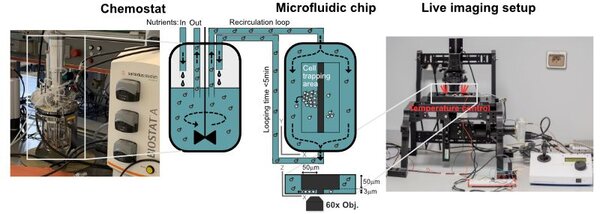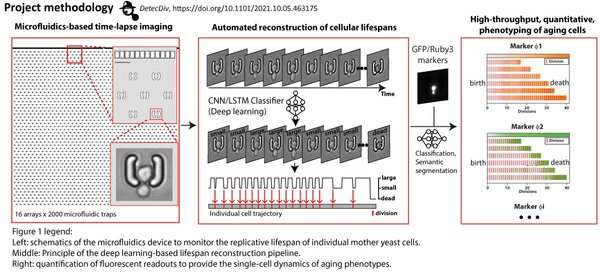L’équipe Biologie quantitative de la croissance cellulaire étudie les processus fondamentaux qui régulent la croissance cellulaire, soit en réponse à des changements environnementaux (stress, nutriments), soit au cours de la vie réplicative des cellules (vieillissement). Nous étudions comment la cellule oriente sa réponse à un stress (par exemple un stress oxydant) soit vers un mécanisme de résistance active, soit vers un état de tolérance dont le prérequis est un arrêt total de la prolifération. Par ailleurs, nous nous attachons à caractériser en détail le ou les mécanismes qui limitent la prolifération réplicative d’une cellule après un nombre limité de divisions.
Pour répondre à ces questions, l’originalité de l’équipe est d’utiliser la microfluidique et l’imagerie time-lapse par microscopie de fluorescence pour suivre des cellules individuelles de levure dans un environnement contrôlé. Nous développons ainsi nos propres systèmes microfluidiques ainsi que des méthodes d’analyse d’image basées sur l’intelligence artificielle (deep learning) pour mesurer de manière quantitative et automatisée la dynamique cellulaire en réponse à des changements environnementaux au cours du temps. Nous sommes particulièrement intéressés à l’émergence d’hétérogénéité phénotypique au sein de micro-cultures et son rôle en tant que stratégie d’adaptation physiologique.
![[Translate to English:] [Translate to English:]](/websites/_processed_/c/4/csm_Jacquel_et_al_2025_6ba758283e.jpg)




